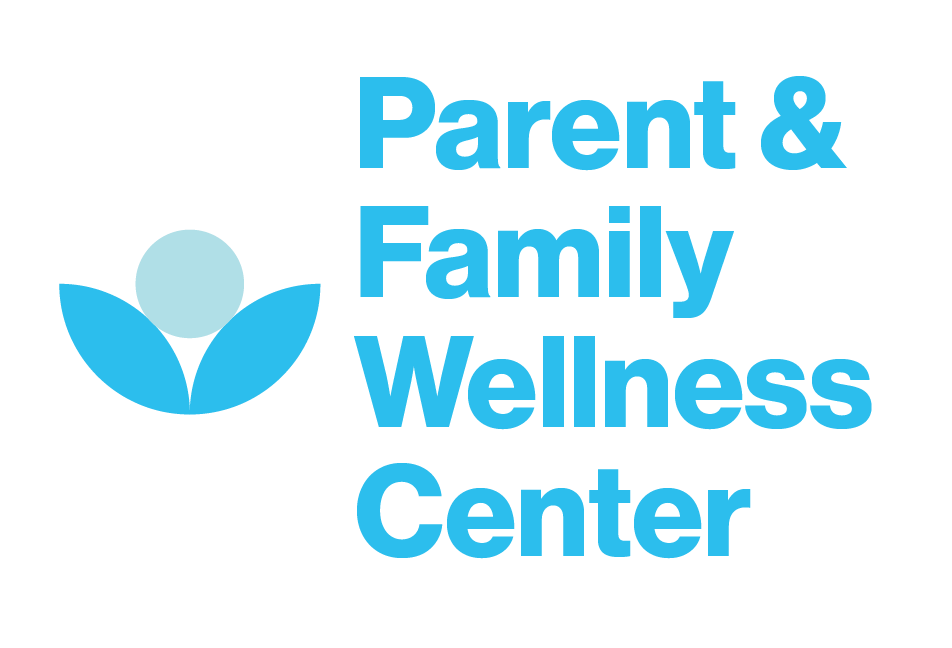Perinatal Mood and Anxiety Disorders
PMADS are thought to be caused primarily by the dramatic hormone shifts that occur after giving birth. Within 24 hours of delivering a baby, estrogen and progesterone levels drop to 200x below pre-pregnancy levels. Estrogen works directly with Serotonin in the brain and so this sudden drop in levels of estrogen can leave the brain more vulnerable to stress. Most symptoms of depression and anxiety will occur in the first several months after having a baby, however, PMADs can occur any time during pregnancy or within the first 12 months after having a baby. Moms who are depressed/anxious during pregnancy are 50% more likely to develop a PMAD like PPD. PMADs are believed to be caused by a number of risk factors including: personal and/or family medical history, the way that mom’s body processes certain hormones, the level of stress that mom is experiencing, and the amount of support that mom has in caring for her baby.
Postpartum Mood and Anxiety Disorders don’t always look like typical depression.
Many women who suffer from a PMAD may never really feel “depressed” at all. Depression is only one of the many symptoms and challenges that moms may struggle with and, more often than not, a mom’s primary symptom is anxiety. Other symptoms that mom may experience in the period during pregnancy and after birth include:
· Anxiety and/or overwhelm
· Sadness
· Mood swings
· Difficulty concentrating
· Difficulty making decisions
· Irritation or anger
· Lack of interest in things you used to enjoy
· Difficulty making decisions
· Sleep and appetite changes
· Panic attacks
· Excessive worry about your baby
· Disturbing thoughts about harming your baby
· Racing thoughts
· Excess energy with little sleep
· Headaches and stomach problems
· Guilt
· Delusions and hallucinations
PMADs are not a reflection of mom’s love for her baby or a lack in desire to care for him/her. It does, however, interfere with mom’s ability to enjoy her pregnancy and/or first few months of being a mom, and, at times, interferes with her ability to attach and bond with her baby as hoped. This is not a mom’s fault and does not make her a weak or bad person.
Support and treatment is available. Through supportive psychotherapy and the development of practical strategies for physical, social, and emotional health, much of the emotional vulnerability that women face can be minimized. While mom may be concerned about the safety of treatment for PMADs, we know that the risk of untreated depression and anxiety for moms far outweighs the risk of certain treatment options including medication. In fact, there are many effective ways of preventing, supporting, and treating these symptoms including: psychotherapy, medication, acupuncture, nutrition, exercise, yoga and meditation.
Moms who struggle with symptoms of depression and anxiety, who seek out help early, and who follow treatment recommendations by trained professions get well. The longer mom’s wait to get help, the more difficult these symptoms can be to treat. When left untreated, PMADs can also have a lasting negative effect on babies and children. PMADs do not typically go away on their own, and so moms are encouraged to seek help as soon as they notice symptoms. Help is out there.
More info:
Postpartum Support International: www.postpartum.net
Postpartum Progress. www.postpartumprogress.com
The Postpartum Stress Center: www.postpartumstress.com
Mass General Center for Women’s Mental Health: https://womensmentalhealth.org
This Isn’t What I Expected by Karen Kleiman and Valerie Davis Raskin and Other Scary Thoughts by Amy Wenzel and Karen Kleiman.
The Pregnancy and Postpartum Anxiety Workbook by Pamela S. Wiegartz and Kevin L. Gyoerkoe.
Beyond the Blues by Pec Indman and Shoshana Bennett.
What am I thinking: Having a Baby after Postpartum Depression by Karen Kleiman.

